This article includes a list of general references, but it lacks sufficient corresponding inline citations .(July 2012) |

Robert Livingston Tillotson (1788 - July 22, 1878 Rhinebeck, Dutchess County, New York) was an American lawyer and politician.
This article includes a list of general references, but it lacks sufficient corresponding inline citations .(July 2012) |

Robert Livingston Tillotson (1788 - July 22, 1878 Rhinebeck, Dutchess County, New York) was an American lawyer and politician.
He was the son of Thomas Tillotson and Margaret Livingston Tillotson, and grandson of Judge grandson of Robert R. Livingston. "Chancellor" Livingston was his uncle.
He was Secretary of State of New York from 1816 to 1817.
He was U.S. Attorney for the Southern District of New York from 1819 to 1828. During his tenure, the Norwegian sloop Restoration was seized by the port authorities upon its arrival at New York, and he filed the papers in the US District Court. The owners, Norwegian immigrants, got the ship released by a pardon signed by President John Quincy Adams.
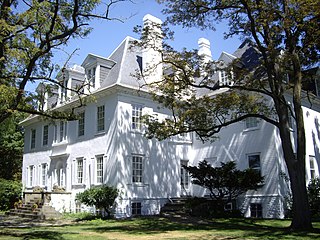
Clermont is a town in Columbia County, New York, United States. The population was 2,058 at the 2020 census. The name of the town is French for "Clear Mountain", in reference to the mountain views in the town.

Robert Robert Livingston was an American lawyer, politician, and diplomat from New York, as well as a Founding Father of the United States. He was known as "The Chancellor" after the high New York state legal office he held for 25 years. He was a member of the Committee of Five that drafted the Declaration of Independence, along with Thomas Jefferson, Benjamin Franklin, John Adams, and Roger Sherman, but was recalled by the state of New York before he could sign the document. Livingston administered the oath of office to George Washington when he assumed the presidency April 30, 1789. Livingston was also elected as a member of the American Philosophical Society in 1801.

Edward Livingston was an American jurist, statesman and slaveholder. He was an influential figure in the drafting of the Louisiana Civil Code of 1825, a civil code based largely on the Napoleonic Code. Livingston represented both New York and then Louisiana in Congress and served as the U.S. Secretary of State from 1831 to 1833 and Minister to France from 1833 to 1835 under President Andrew Jackson. He was also the 46th mayor of New York City.

Robert Robert Livingston, also called The Judge, was a prominent colonial American politician, and a leading Whig in New York in the years leading up to the American Revolution.
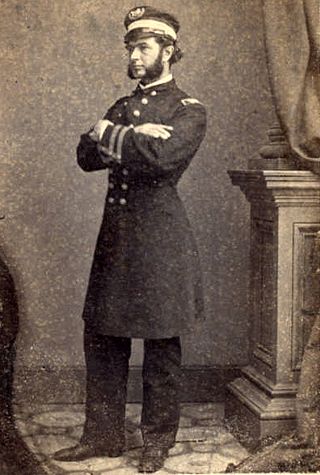
Thomas Harmon Patterson was a rear admiral in the United States Navy.
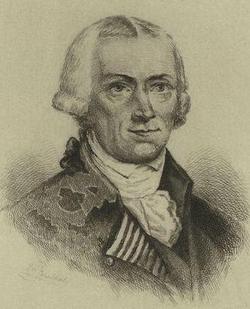
Walter Livingston was an American merchant, lawyer and politician.
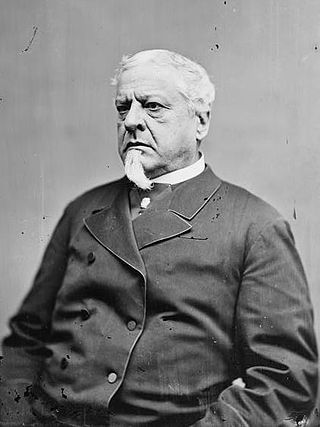
William Henry Hunt was the 29th United States Secretary of the Navy, Minister to the Russian Empire and a judge of the Court of Claims.

The Knickerbocker Club is a gentlemen's club in New York City that was founded in 1871. It is considered to be the most exclusive club in the United States and one of the most aristocratic gentlemen's clubs in the world.

Thomas Tillotson was an American physician and politician.

Edward Philip Livingston was an American politician.

The 1807 New York gubernatorial election was held in April 1807 to elect the Governor. Incumbent Governor Morgan Lewis ran for a second consecutive term in office but was defeated by Daniel D. Tompkins, who had the support of the influential Clinton family.
The 1802 United States Senate special election in New York was held on February 9, 1802, by the New York State Legislature to elect a U.S. Senator to represent the State of New York in the United States Senate.

The Roeliff Jansen Kill is a major tributary to the Hudson River. Roeliff Jansen Kill was the traditional boundary between the Native American Mahican and Wappinger tribes.
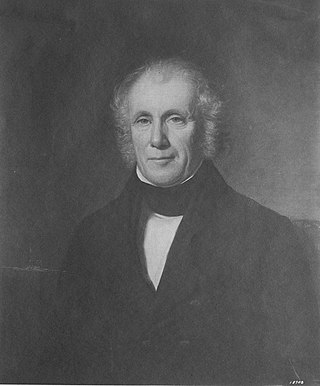
Maturin Livingston, a member of the prominent Livingston family, was an American lawyer and politician from New York.

Alexander Hamilton Jr., was the son of James Alexander Hamilton, and the grandson of Alexander Hamilton, one of the Founding Fathers of the United States.
James Otis was a Republican member of the New York State Senate and a society leader during the Gilded Age.
Morgan Lewis Livingston, was an American heir and member of the prominent Livingston family from New York.

Charles Augustus Peabody, Jr. was an American politician, lawyer, and prominent figure in New York banking and insurance.
Henry Beekman was a prominent colonial American politician and landowner.
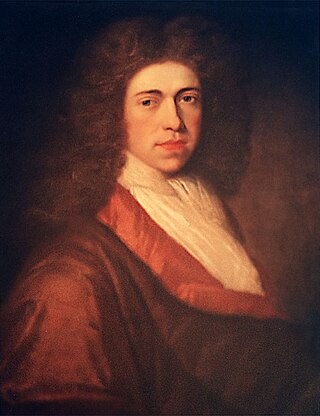
Col. Hendrick "Henry" Beekman JP, was a colonial American judge and politician.